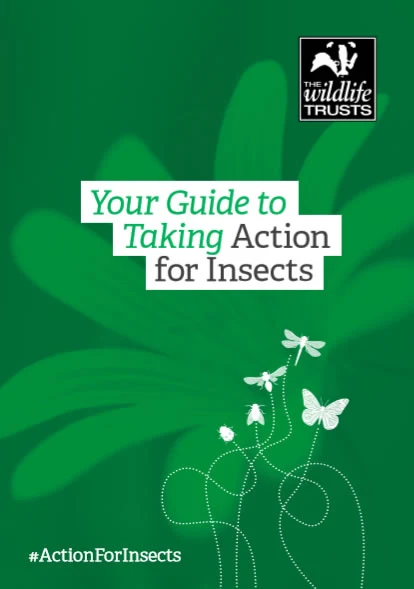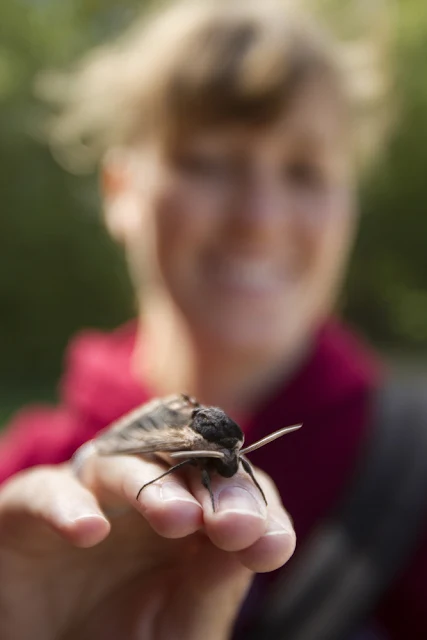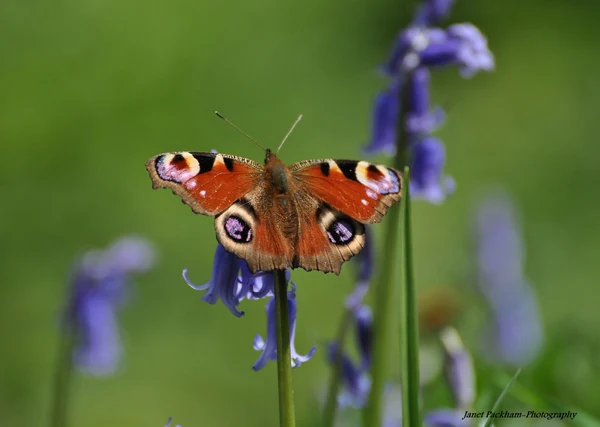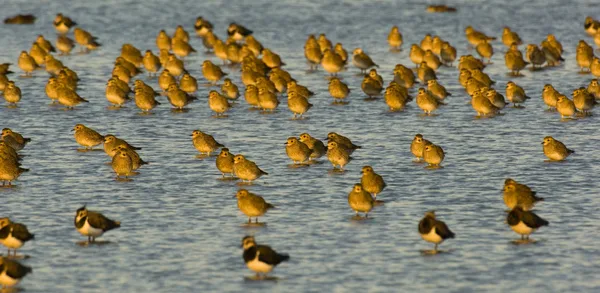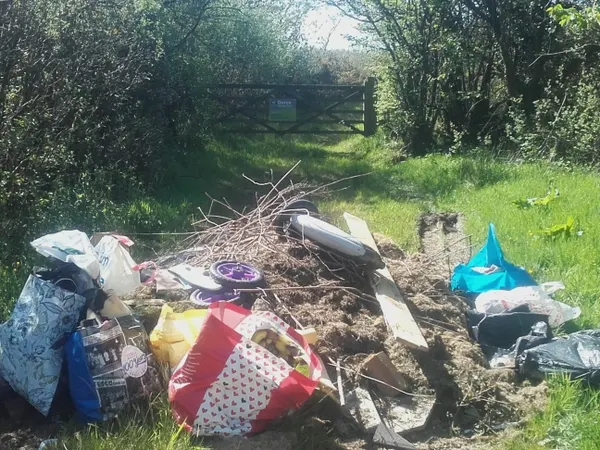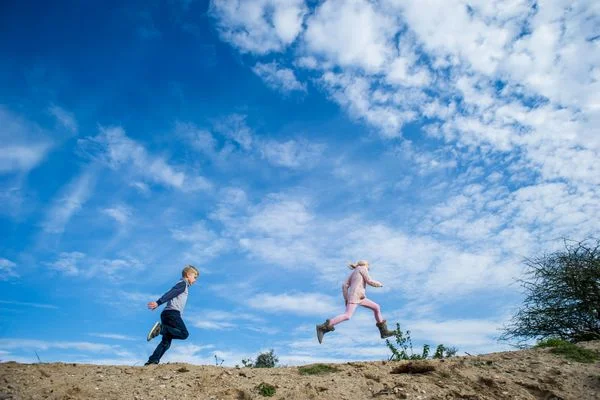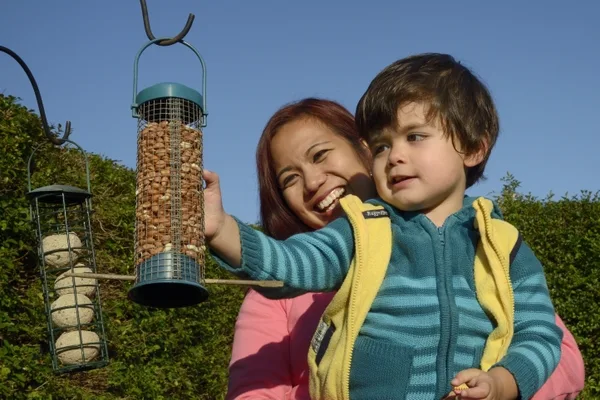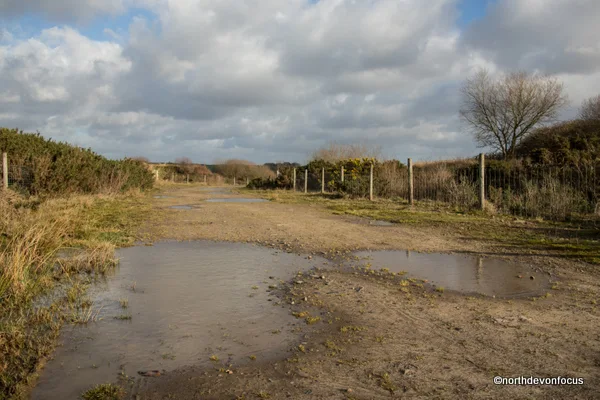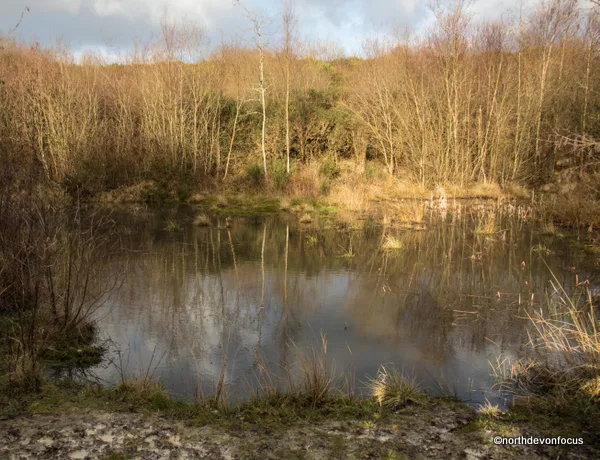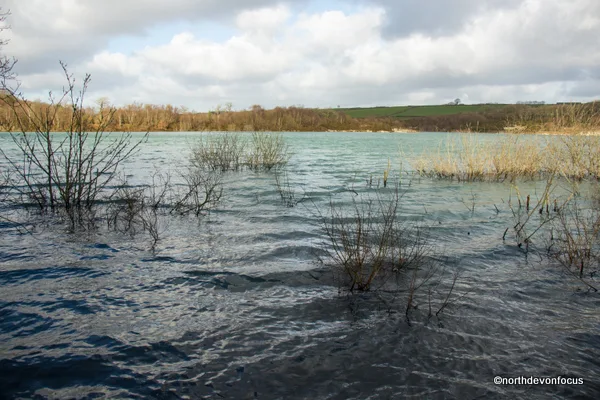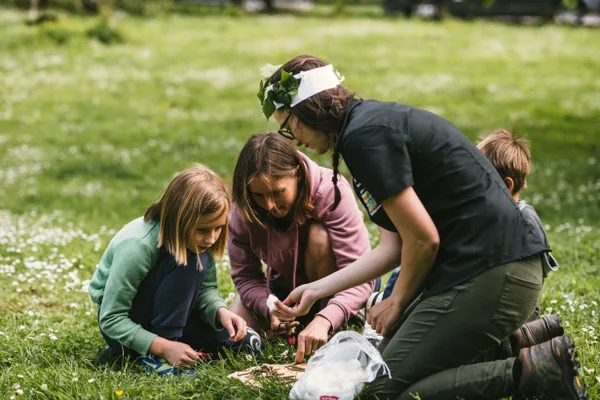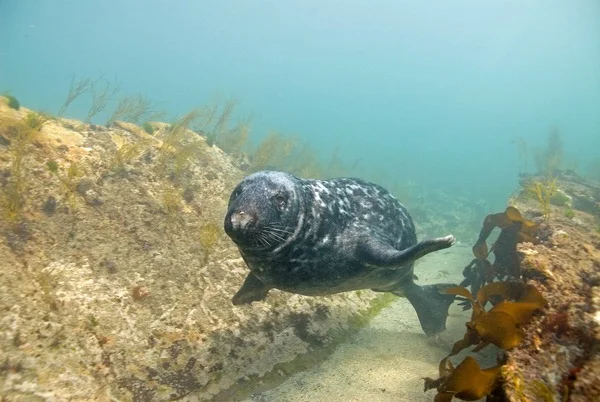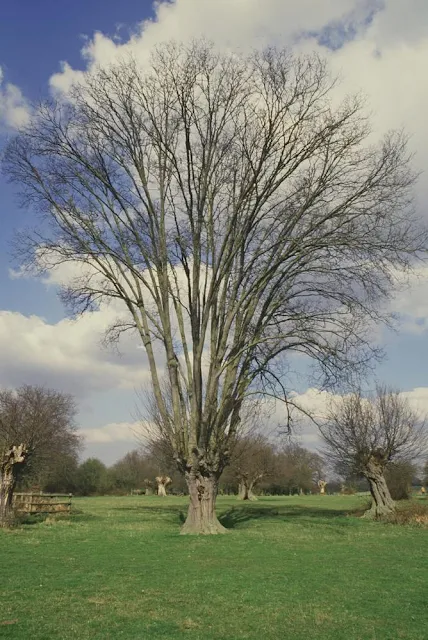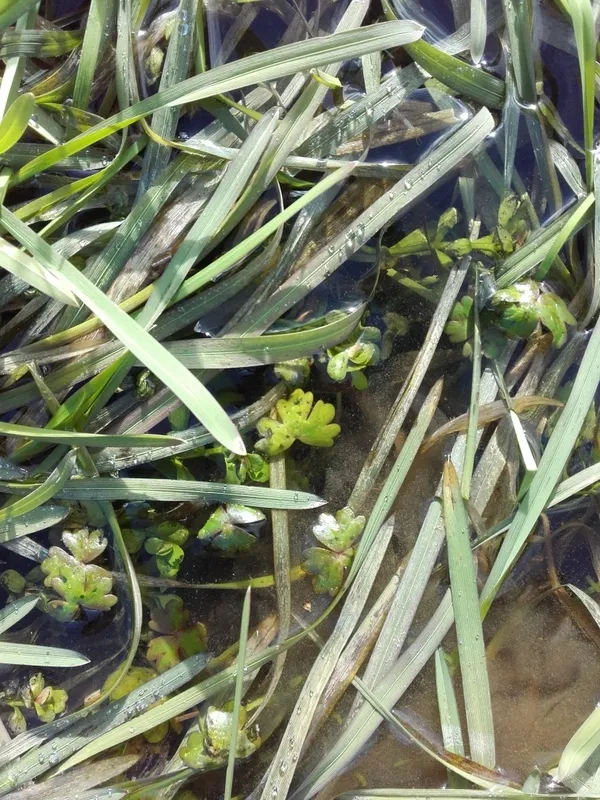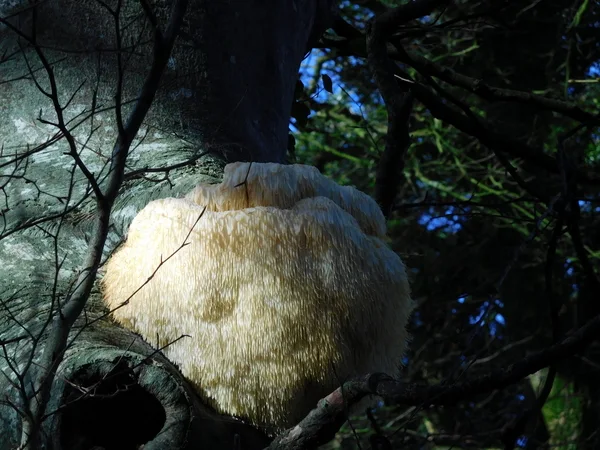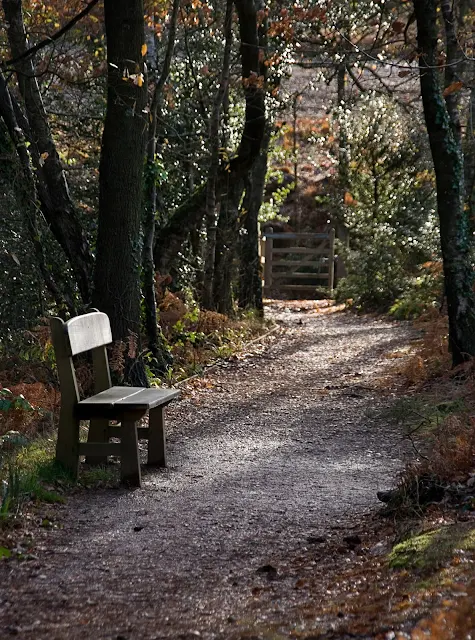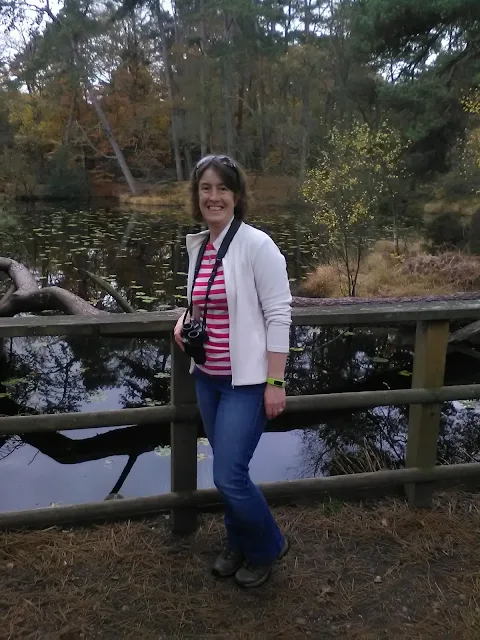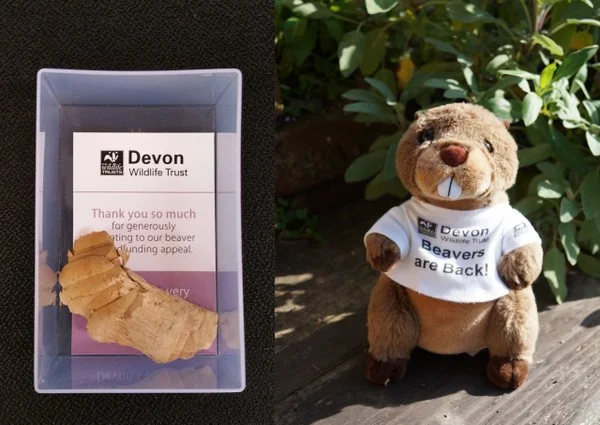A local conservation charity is launching a new initiative which urges us all to play a part in reversing the failing fortunes of some of our most easily overlooked wildlife: insects.
Devon Wildlife Trust is launching a new practical pack, Your Guide to Taking Action for Insects, which will help everyone do their bit in reversing decades of decline for the UK’s struggling bees, butterflies, moths, bugs and beetles.
The colourful, 20-page, illustrated guide is available as a free download via https://www.wildlifetrusts.org/take-action-insects. It’s packed full of tips, useful info, and links to finding out more, all aimed at helping individuals and families make simple yet crucial changes to helping insects through the ways we shop, garden and run our homes.
The guide has been authored by The Wildlife Trusts working with partner organisations including Buglife, Pesticide Action Network (PAN) and Garden Organic. It has been launched as part of a wider campaign called Action for Insects, which looks to reverse recent drastic population declines among insects.
A recent report published by the campaign, authored by Professor David Goulson, concluded that 41% of insect species now faced extinction around the world, while population declines were widespread across other insect species. The report also highlighted the vital part played by insects in human food production and in their support of countless other birds, mammals and plants.
Your Guide to Taking Action for Insects recognises that some insects aren’t always popular with the public when it comes to wildlife, and that this is especially true when applied to gardeners. However, it highlights the crucial roles they play in pollinating flowers and crops, controlling pests and natural recycling, plus the beauty and joy that they bring to our lives.
In a range of top tips for helping insects in people’s gardens, it gives guidance on going chemical- and peat-free, along with advice on which plants are best at combining colour, scent and attraction to bees and butterflies across the seasons. The guide stresses that all outdoor spaces, whatever their size and location, from tower block balconies to cottage gardens, can make a real difference to restoring insect numbers.
Steve Hussey, spokesperson for Devon Wildlife Trust, says:
“We’re delighted to be launching Your Guide to Taking Action for Insects. The warmer weather of spring combined with the current restrictions placed upon everyone in response to the Covid-19 virus means that people are spending more time in their gardens, yards and on their balconies. This guide provides people with advice on how to make positive changes to help insects, which will not only help mini-beasts but boost morale too! We’re asking people to make whatever outdoor space they have into a better place for insects, be it a window box, a garden or an allotment.
Our guide gives them the inspiration and the practical know-how to take a few simple steps to making a big difference to their local wildlife. Insects are one of the key building blocks of life on which we and countless other familiar species from hedgehogs to garden birds rely. If we follow the guide’s advice as gardeners, shoppers and homeowners we can turn the tide on insect declines.”
James Campbell, Garden Organic CEO says:
“Garden Organic is pleased to be supporting the Action for Insects campaign. All gardeners and growers should celebrate insects who are part of the natural chain of life. Organic gardeners also help by creating habitats and shelter, as well as providing plants to feed and support insect life”
Josie Cohen, CEO Pesticide Action Network UK (PAN UK) says:
“Everyone has a role to play in making the world less toxic so insects can flourish. By stopping using pesticides in your home and garden, and supporting businesses working to reduce chemicals in their supply chains, you can contribute towards building a healthier and more sustainable planet for both us and our six-legged friends.”
Devon Wildlife Trust is launching a new practical pack, Your Guide to Taking Action for Insects, which will help everyone do their bit in reversing decades of decline for the UK’s struggling bees, butterflies, moths, bugs and beetles.
The colourful, 20-page, illustrated guide is available as a free download via https://www.wildlifetrusts.org/take-action-insects. It’s packed full of tips, useful info, and links to finding out more, all aimed at helping individuals and families make simple yet crucial changes to helping insects through the ways we shop, garden and run our homes.
The guide has been authored by The Wildlife Trusts working with partner organisations including Buglife, Pesticide Action Network (PAN) and Garden Organic. It has been launched as part of a wider campaign called Action for Insects, which looks to reverse recent drastic population declines among insects.
A recent report published by the campaign, authored by Professor David Goulson, concluded that 41% of insect species now faced extinction around the world, while population declines were widespread across other insect species. The report also highlighted the vital part played by insects in human food production and in their support of countless other birds, mammals and plants.
Your Guide to Taking Action for Insects recognises that some insects aren’t always popular with the public when it comes to wildlife, and that this is especially true when applied to gardeners. However, it highlights the crucial roles they play in pollinating flowers and crops, controlling pests and natural recycling, plus the beauty and joy that they bring to our lives.
In a range of top tips for helping insects in people’s gardens, it gives guidance on going chemical- and peat-free, along with advice on which plants are best at combining colour, scent and attraction to bees and butterflies across the seasons. The guide stresses that all outdoor spaces, whatever their size and location, from tower block balconies to cottage gardens, can make a real difference to restoring insect numbers.
Steve Hussey, spokesperson for Devon Wildlife Trust, says:
“We’re delighted to be launching Your Guide to Taking Action for Insects. The warmer weather of spring combined with the current restrictions placed upon everyone in response to the Covid-19 virus means that people are spending more time in their gardens, yards and on their balconies. This guide provides people with advice on how to make positive changes to help insects, which will not only help mini-beasts but boost morale too! We’re asking people to make whatever outdoor space they have into a better place for insects, be it a window box, a garden or an allotment.
Our guide gives them the inspiration and the practical know-how to take a few simple steps to making a big difference to their local wildlife. Insects are one of the key building blocks of life on which we and countless other familiar species from hedgehogs to garden birds rely. If we follow the guide’s advice as gardeners, shoppers and homeowners we can turn the tide on insect declines.”
James Campbell, Garden Organic CEO says:
“Garden Organic is pleased to be supporting the Action for Insects campaign. All gardeners and growers should celebrate insects who are part of the natural chain of life. Organic gardeners also help by creating habitats and shelter, as well as providing plants to feed and support insect life”
Josie Cohen, CEO Pesticide Action Network UK (PAN UK) says:
“Everyone has a role to play in making the world less toxic so insects can flourish. By stopping using pesticides in your home and garden, and supporting businesses working to reduce chemicals in their supply chains, you can contribute towards building a healthier and more sustainable planet for both us and our six-legged friends.”
Your Guide to Taking Action for Insects
is available now as a free download
via the Devon Wildlife Trust website www.devonwildlifetrust.org or www.wildlifetrusts.org/take-action-insects
A privet hawkmoth being held by unnamed person. Photo credit Jane McIntosh
A peacock butterfly settled on a bluebell. Photo credit Janet Packham
👀👀👀
Action for Insects is a national campaign coordinated by The Wildlife Trusts. Its aim is to reverse insect declines. go to Tap here for more on the campaign The figure of 41% of insect species being threatened with extinction I taken from Insect Declines And Why They Matter, authored by Prof David Goulson (University of Sussex), 2019. The report can be downloaded here

